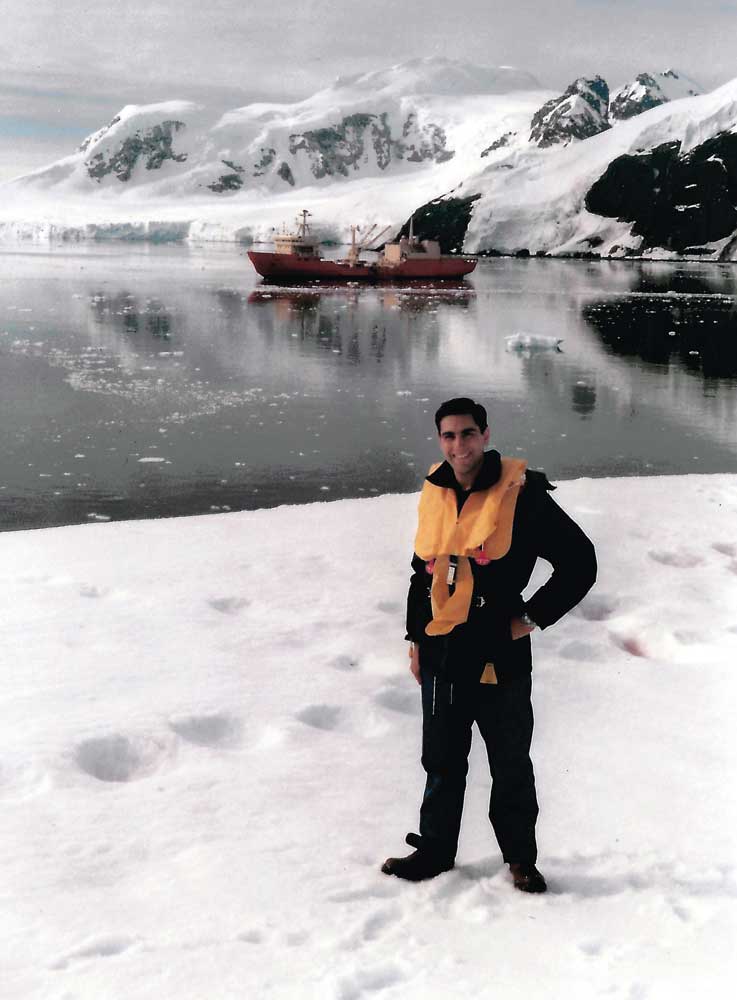
Testimonials – Daniel Reche
Antarctica, a true White Forest
Retired member of the Armed Forces, who aboard the polar transport ARA Paradise Bay He carried out three Antarctic campaigns during the summers of 85/86, 86/87 and 87/88, respectively.
Journeys filled with odysseys, challenges, efforts, and patriotism—these are just some of the words this former member of the Armed Forces uses when talking about the Antarctic sector.
Here is his voice.
“When I was a young officer, and just after my honeymoon, I embarked on three consecutive summer campaigns aboard the polar transport ARA Paradise Bay.”
“My role on board, as propulsion chief, was to operate and maintain the equipment that provided propulsion to the polar transport. We sailed from Ushuaia to Antarctica, and vice versa, to carry out supply tasks and the embarkation and disembarkation of Antarctic civilian and military personnel, including tourists.”
When referring to the cam-Antarctic panas, Daniel He recalled that during one of them, "we received an unexpected emergency radio call from a Brazilian Antarctic base, at the very moment we were battling an intense storm in the Drake Passage, because one of its members was suffering from peritonitis. So we quickly set off to pick him up by helicopter and transport him on board for stabilization and intervention, if necessary. Finally, upon arriving at the port of Ushuaia, he was successfully admitted to the Ernesto Manuel Campos Regional Hospital."
The sailor also recounted the first time he embarked with tourists of various nationalities on one of those many trips.
“I remember that the first contingent of tourists belonged to the Antartur company, whose owner was Gustavo Giró, an experienced Argentine army officer, who had won awards for his historic expedition to the South Pole during the 1960s,” Daniel said.
He also expressed that "the appeal of these naval voyages was that on board we also shared space with people from different professions, in addition to sailors dedicated to various specialties, from researchers and scientists to renowned politicians and tourists."
After a thoughtful pause, Daniel continued his story and said that the polar transport he was destined for “also supplied other Antarctic bases, in addition to the Argentine ones, to the one in China, which they named Great Wall, and added that “…of the national bases, the most inhabited was Esperanza since it was made up of army personnel, families, doctors, dentists, teachers, and even a veterinarian, and of the international ones, for obvious reasons, the one in China.”
In Daniel's words, the veterinarian played a crucial role in Antarctica because he was in charge of the health of the Samoyed dogs, which were used to pull the sleds. Years later, "for humanitarian and even ecological reasons, if you will, these dogs were replaced by motor vehicles," Daniel stated.
He then referred to the advantage dogs had over motor vehicles, explaining that Samoyeds had a unique ability to detect cracks in the Antarctic continent “…because they were endowed with an enviable intuition.”
On this occasion, he also referred to the almost impregnable Drake Passage they had to cross to reach Antarctica. "I barely remember it and it makes my skin crawl. It had to be crossed with great caution, patience, and the finest skill."
“…at lunch with the commander, an Argentine speleologist told us about his encounter with the astronaut Neil Armstrong, the first to walk on the moon; when we asked him what the astronaut told him about what he had seen in space, he said: I'll take it to the grave”.
“The Drake Passage was always characterized by being stormy, with waves up to eight meters high, like the ones I experienced, which prevented us from sleeping or eating for more than twenty-four hours.
The waters are just calming down in the vicinity of the Antarctic bases, since the large icebergs and islands form barriers that contain the onslaught of the sea,” Daniel told us.
“Another memory thatWhat comes to mind was what happened with one of our helicopters in charge of transporting loads in chinguillos held by a hook with a remote trigger,” said the former marine.
“On one occasion, a scientist from Conicet insisted that we be careful with certain boxes of seismological instruments that were to be transported by helicopter to the Antarctic continent. He kept insisting on this. Finally, their turn came; the boxes were placed in the chinguillo and then hung from the helicopter. As it took off, due to the excessive weight, the helicopter had to release the hook and release the load, otherwise it would have crashed against the deck. The entire cargo fell into the sea in front of the scientist, who, astonished, was left tumbling like a headless horsefly.”
However, according to Daniel, not everything was tinged with dark overtones. There were also moments of relaxation, such as, "...at lunch with the commander, an Argentine speleologist told us about his encounter with astronaut Neil Armstrong, the first to walk on the moon. When we asked him what the astronaut told him about what he had seen in space, he said, 'I'll take that to my grave.'"
Nor did he forget some anecdotes shared during the toasts. "In those campaigns, it was fashionable to toast at night, or rather in the twilight, with whiskey and ancient ice from icebergs, which is why there was always a crew from a sailboat who would approach us for that purpose quite often while we anchored in the shelter of some bay."
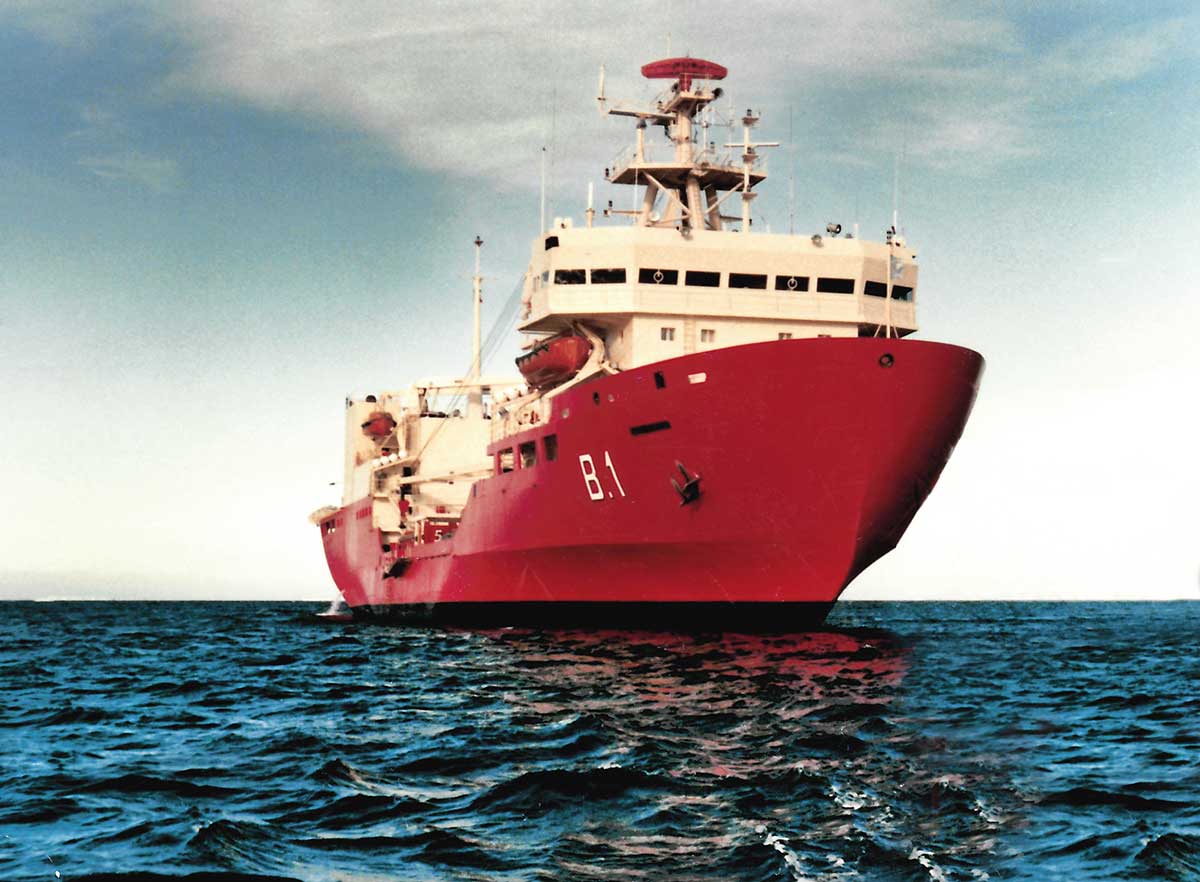
ARA Bahía ParaísoA rock in the Bismarck Strait killed this Antarctic ship in 1989. Photo: Daniel Reche
In March 1988, the sailor disembarked and finally said goodbye forever to his beloved polar transport ARA Paradise BayA rock in the Bismarck Strait ended the life of this Antarctic ship, leaving it stranded in the deep southern waters during the Antarctic summer of 1988/89. It had run aground on January 28, 1988. Thanks to Poseidon, the God of the Sea, there were no casualties. But that's another story.
Daniel is currently retired, enjoying his free time in his own way, producing knives, among other cutting tools.
We invite you to stop by her stand at the “Enriqueta Gastelumendi” Artisan Walk in Ushuaia's 25 de Mayo Plaza to discuss her two loves: the Navy and Antarctica.
Enjoy the Free Online Magazine version!

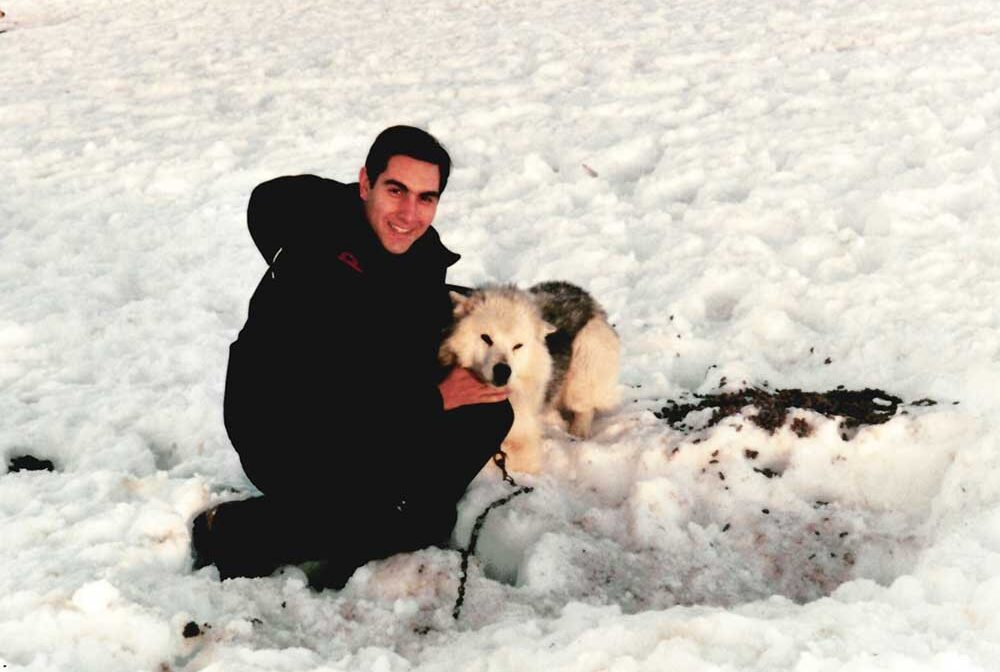
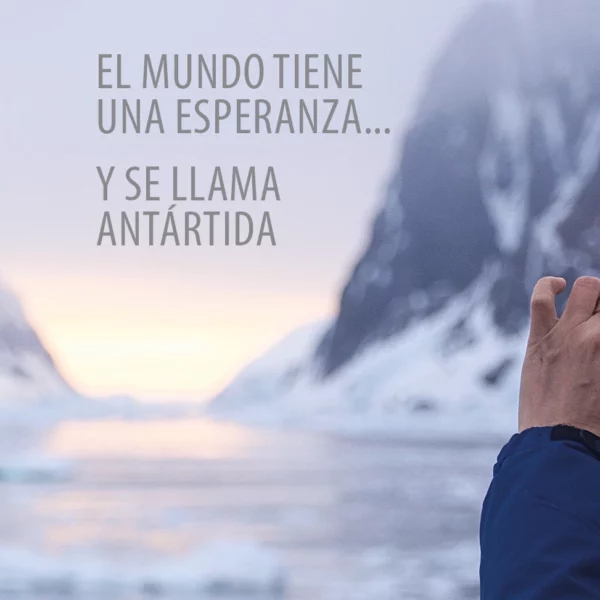

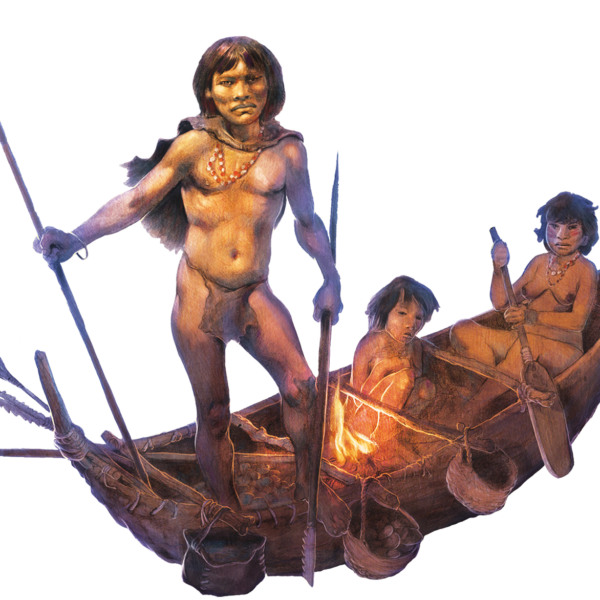

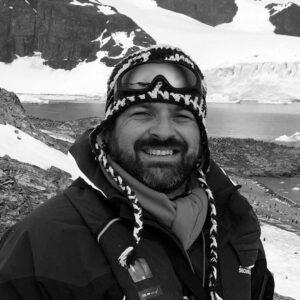
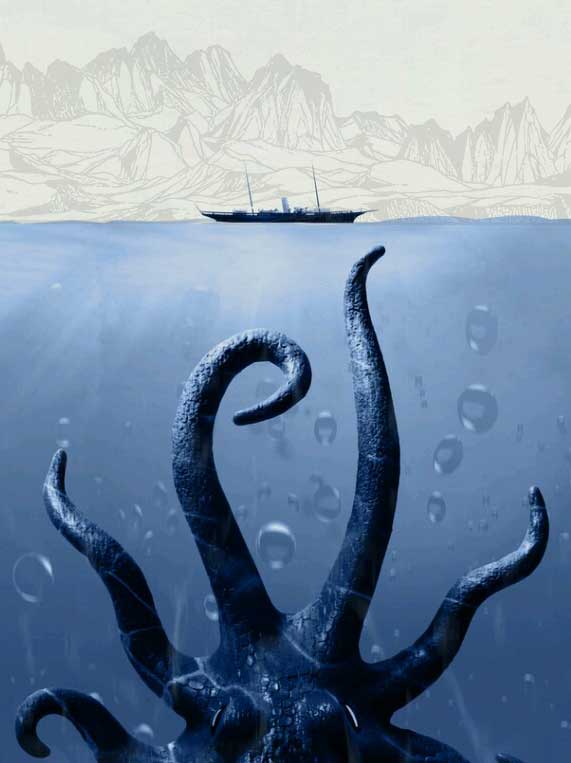

Alejandro Ursino -
What is Daniel doing now?